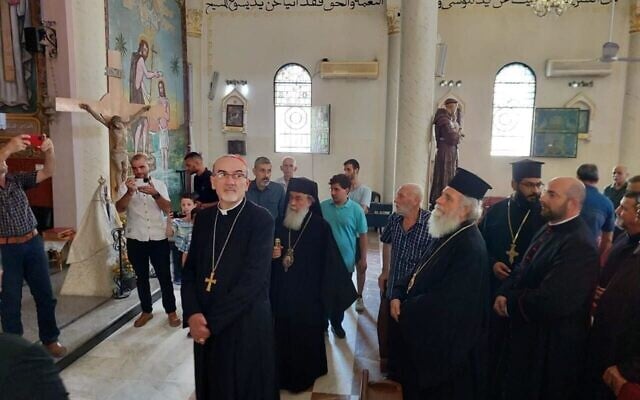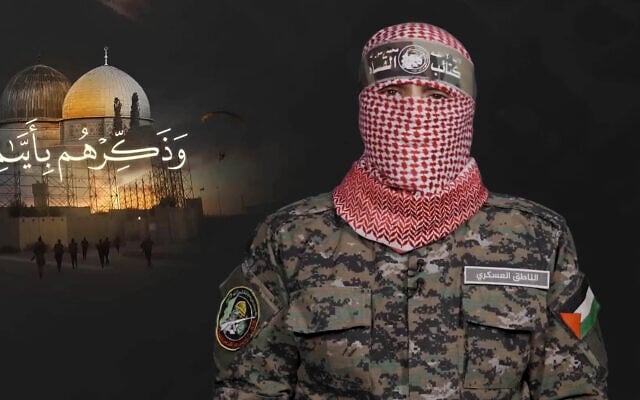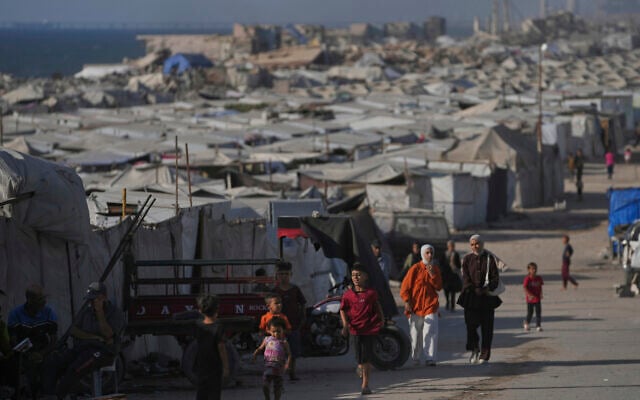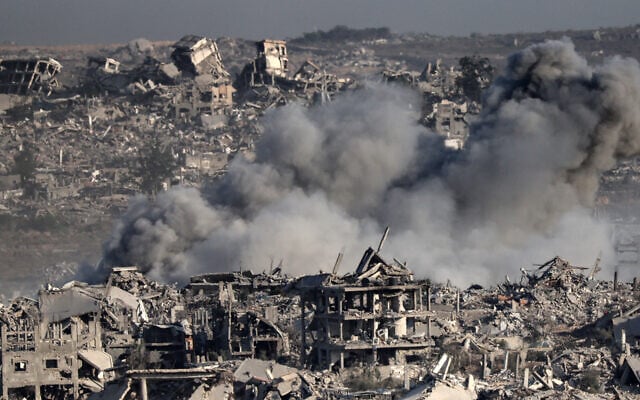


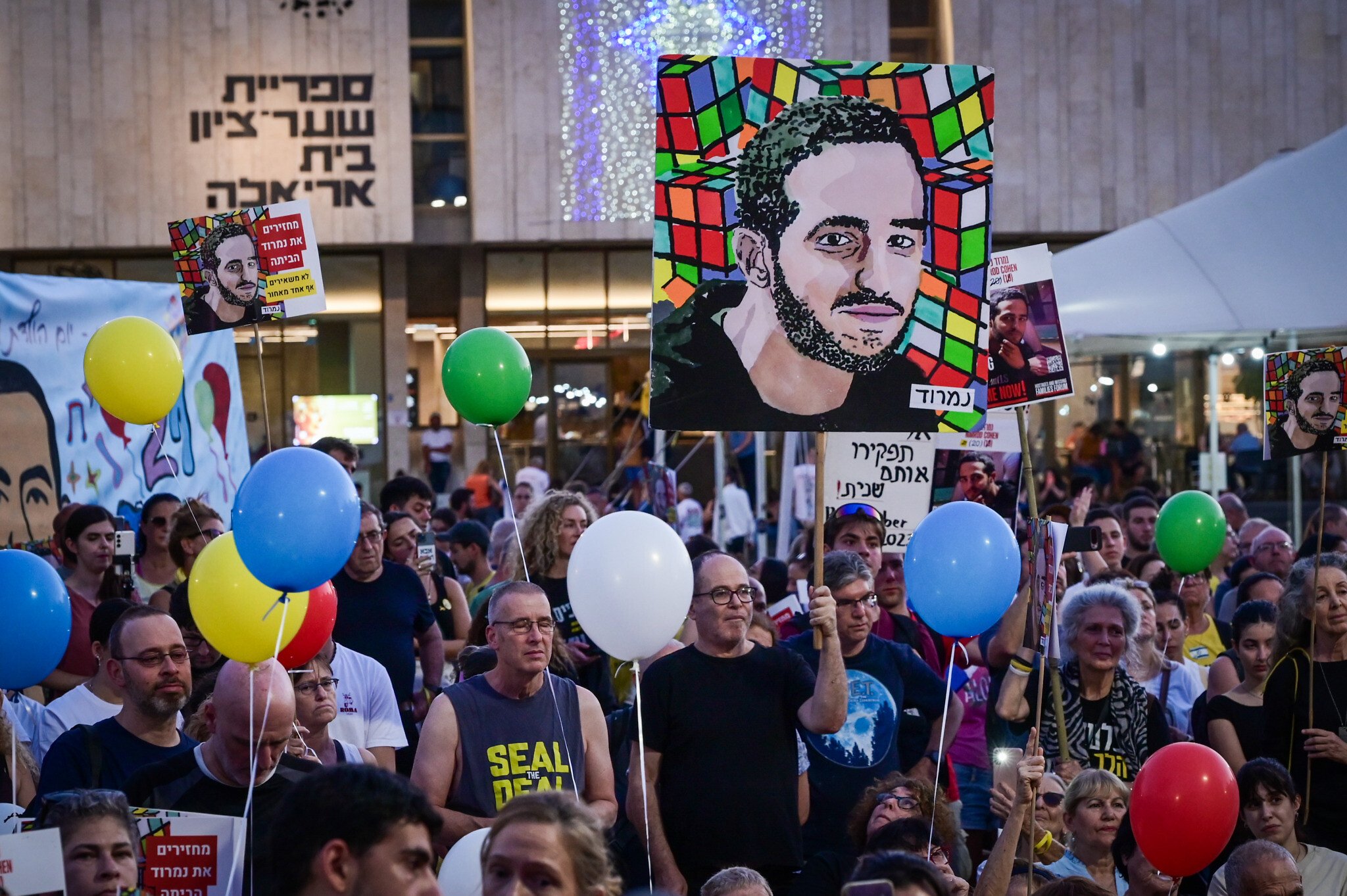
A senior Israeli official on Friday accused Hamas of “dragging its feet” in the ongoing hostage negotiations in Doha, as Jerusalem awaited the terror group to respond to a softened Israeli proposal for the IDF’s partial withdrawal from Gaza, which had mediators bullish about the chances for a deal.
“Israel is ready to see negotiations with Hamas through to the end, but the refusal and foot-dragging are raising doubts about Hamas’s seriousness,” an Israeli official told reporters during a phone briefing regarding the status of the negotiations.
Beyond Israel, Egyptian, Qatari and US mediators were also frustrated with Hamas for taking so long to respond to the updated maps that Israel submitted to mediators on Wednesday, an Arab diplomat and a second source involved in the mediation effort told The Times of Israel.
Egypt is fed up with Hamas and is threatening consequences against the terror group if it doesn’t accept the Israeli proposal so that the sides can move on to discuss remaining issues in the negotiations, the Arab diplomat said.
But as of after midnight on Saturday, Hamas was still holding deliberations, leaving the mediators on hold.
Despite the frustration with Hamas, the source involved in the mediation effort said the outstanding issues are surmountable and that a deal is still possible within days, perhaps toward the end of next week.
That optimism was also expressed by Prime Minister Benjamin Netanyahu during his Friday phone call with Pope Leo against the backdrop of a deadly Israeli strike on Gaza’s only Catholic church, according to Hebrew media reports. Netanyahu apologized for the strike that killed three people and said that the sides are close to reaching a truce deal, as Israel faces mounting pressure to end the war, according to Channel 12.
For his part, the spokesperson for Hamas’s military wing, Abu Obeida, said in a recorded speech aired on Friday that the terror group may not engage in another effort to reach a temporary deal if the current one fails.
Hamas has instead preferred a comprehensive approach, offering to release all of the hostages in one batch if Israel agrees to end the war. Netanyahu has rejected this exchange, arguing that it would leave Hamas in power.
The Israeli official briefing reporters Friday said Hamas mistakenly thinks that time is on its side, even though further delays meant that IDF operations in Gaza continued at the expense of both the terror group and civilians.
The official claimed Hamas has refused to move forward in talks to discuss the ratio of prisoners released for each hostage, which is delaying the implementation of the ceasefire.
A second Arab diplomat along with the aforementioned source involved in the mediation effort told The Times of Israel on Thursday that Hamas had in fact lifted its veto over discussing the terms of the hostage-prisoner swap after receiving Israel’s updated maps.
The sources said that the swap ratio was among the issues that Hamas was discussing into the night on Friday.
Meanwhile, the senior Israeli official confirmed that separate Israeli and Egyptian negotiating teams have been meeting in Cairo in order to discuss the delivery of humanitarian aid during the truce on the table. The official said that progress has been made in those talks.
While the Israeli official said that Jerusalem has exercised significant flexibility in the talks, he denied that it had agreed to return to the so-called March 2 lines where the IDF was stationed before Israel collapsed the previous ceasefire.
The second Arab diplomat and source involved in the mediation efforts told The Times of Israel on Thursday that Jerusalem had in fact agreed to largely return to those positions from the previous ceasefire, with some adjustments.
After demanding for weeks to remain in the Morag Corridor — which separates the southern Gaza cities of Rafah and Khan Younis — in order to maintain a buffer zone that extended five kilometers north from the Egyptian border, the new Israeli maps show that Jerusalem has agreed to remove its forces from that 12-kilometer-wide strip, the sources said.
Instead, Israel has reduced its demand for the Rafah buffer zone to extend a little over one kilometer in what the second Arab diplomat said neutralizes Jerusalem’s earlier plans to create a controversial “humanitarian city” to which Gaza’s population would be moved, vetted upon entry, and prevented from leaving, as Jerusalem hoped to encourage Gazans’ emigration from the Strip.
Israel has also agreed to keep its forces in a perimeter around the rest of the Strip that is also one kilometer wide, after initially insisting on a two- or three-kilometer perimeter, the two sources said.
The source involved in the mediation effort said Hamas would likely come back with minor reservations, but not ones significant enough to derail the negotiations. Still, the US has passed along a message to Hamas through mediators, warning of significant consequences if it drags out the negotiations.
The issue of humanitarian aid had previously been an obstacle in earlier rounds of talks, with Israel seeking to keep the controversial Gaza Humanitarian Foundation operational, against the wishes of Hamas.
But the redeployment that Israel has authorized would see IDF troops withdrawing from most of the central and southern Gaza areas where GHF has been operating distribution sites. While Israel has touted GHF for boxing Hamas out of the aid distribution process, the model has been criticized for limiting distribution to just one to three sites a day, forcing Gazans to walk long distances while often dodging deadly Israeli fire to pick up aid at overcrowded and chaotic militarized hubs.
The separate negotiations in Cairo are aimed at coming up with a new mechanism for allowing aid into Gaza through Egypt in a manner that prevents Hamas from diverting it, the source said.
The current proposal would see the release of 10 living hostages and 18 slain hostages in five batches throughout the two-month truce.
Previous proposals offered the release of 125 Palestinians serving life sentences for involvement in attacks that killed Israelis, along with 1,111 Palestinians who were arrested by the IDF in Gaza since the October 7, 20223, onslaught. The vast majority of the latter category have not been charged with a crime.
The sources said that the ratio would likely increase slightly in Hamas’s favor, but not significantly enough to lead Israel to reject the proposal.
The sources said several days will still be needed to conclude negotiations regarding the hostage-prisoner swap.
The Israeli official briefing reporters on Friday said that US special envoy to the Mideast Steve Witkoff will travel once the talks reach a stage where the deal is ready to be finalized. The White House appeared to prematurely announce such a trip early last week, only to see Witkoff push off his departure as the talks stalled.

